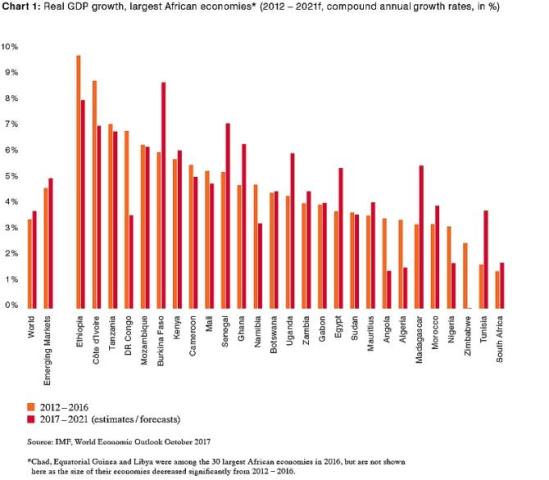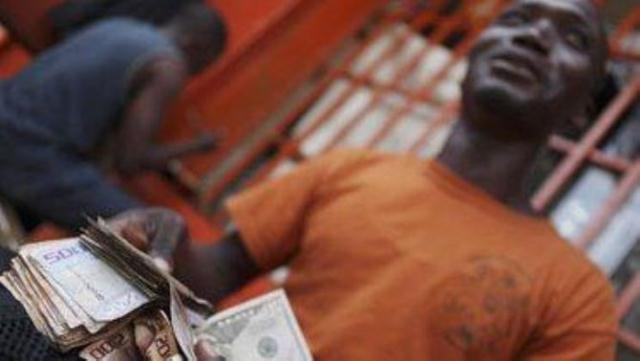Currency devaluation affects reinsurance market in Africa leading to big firms losing billions of dollars. Currency instability also distresses companies importing or exporting from countries in Africa. This has become a puzzle to stakeholders in the reinsurance sector and African countries experience depreciation upon using their foreign exchange reserves to come out of the conundrum. In all of this, experts said that African reinsurance market has however enjoyed material development over the past decade in the area of financial performance. But looking for solutions to neutralize the negative blow of the theatrical depreciation in the currencies, this article traces that financial markets in Africa are suffering due to low level of incorporation of these markets in the economy of the world, Odimegwu Onwumere writes
Africa has had some shocking experiences with high inflation, currency devaluation and electoral disputes in particular, when the world was thrown into recession, which started from the United States in 1991 and lasted for eight months and then in 2007 and beyond. This was apart from what data called the Great Depression which began in August 1929, when the United States economy first went into an economic recession. Against this backdrop, currency devaluation has become a puzzle to stakeholders in the reinsurance sector especially on the continent of Africa.
In the 2nd publication of Africa Insurance Barometer market review released by the African Insurance Organisation, AIO, at the 44th Conference and General Assembly in Uganda in May 2017, Nigeria and Egypt were singled out as countries that recorded precipitous decrease in the continent’s performance in the insurance division in 2015 ensuing in a total of USD 6billion downhill in premium proceeds to USD54 billion, down from USD70 billion in 2014. Many African currencies depreciated within the period under review, as according to the report, but the depreciation of the Egyptian Pound and the Nigerian Naira were a major factor to the decline. Conversely, the Managing Director, WAICA Reinsurance Corporation Plc (which belongs to the West African English speaking countries of Nigeria, Ghana, Sierra Leone, Liberia and Gambia chiefly, although with offices in Eastern and Southern Africa), Abiola Ekundayo told newsmen in Lagos in June this year that they would have done better last year if not for currency devaluation in all the countries and policies. And this came with instability.

Ekundayo gave instance that in 2016 his firm lost millions of dollars, affirming that they were able to write about $62.5m premium and profit of almost $7m. But the hard nut was that they were paying dividend to their shareholders endlessly since the start of the year of operation and they were still paying that had amounted to about $2.5m.
This was apart from a data with the title, “WAICA Re Plc lost $2bn to Nigeria’s currency devaluation in 2016 —CEO” published in a national daily of July 17, 2017. The source added that the firm lost over N2billion in their account in Nigeria with the devaluation of the currency from N198 to N360/USD. Analysts nonetheless believed that financial markets in Africa were suffering due to low level of incorporation of these markets in the economy of the world, but banks remained significantly unaffected on the continent when recession was at its peak.
Industry Needed Innovative Solutions
In May 2016, opinion leaders in South African insurance industry cried out that the industry needed innovative solutions to neutralize the negative blow of the theatrical depreciation in the value of the rand since December 2015, because there was budding disinvestment by foreign-owned insurance and reinsurance firms as the currency weakened and hindered their come back on investment and capital. Then-again, South African Rand dropped to its lowest level around September 2015 since 2011 having lost about 18% of its value against the US in that year alone.
Zambian kwacha was regarded as the worst performing currency in 2015 worldwide, as according to Bloomberg data; it lost around 40% of its value against the dollar as the country’s exports pitched, being deeply reliant on sales of copper, the price of which wilted by a quarter during that year. Those who know better said that Ghana’s cedi was not left out; it lost virtually 20% over in that year, while in Mozambique, the metical lost 36%.

Nigeria, regarded as one of the continent’s largest economy, the Central Bank constrained entrée to dollars, in an effort to plod the flight of hard currency out of the country, and to reinforce the local currency, the naira. As a result of recession and inconsistency in currency value which affected African economies drastically, experts on the continent harangued about drop in exports, tourism, remittances, foreign direct investment and overseas development assistance.
Recession Apart
Apart from recession, there were European debt crises, the United States’ credit rating downgrade.
Specialists were of the view that these caused contempt of African currencies and inflation. The debt crisis in the euro zone moved to the denigration of the euro against the dollar.
Checks revealed that there was a paradigm shift as investors avoided risk that was associated with Euros to pitch tent with the USA Dollars and gold.
Many African countries slightly benefited against the Euro and fell against the dollar and vis-à-vis. However, African governments did not sleep on their oars but initiated large array of policies to halt job losses and other catastrophes that were occasioned by the recession.
Instability On African Currencies
Africa experienced exchange rate risk in recession. Many countries on the continent were looking for a way out from the economic ditch they had fallen into. And around November 2016, Egypt decided to devalue its currency by 48% and to allow it to float.
Industry forecasters said this would lead to insurance premiums rising by 25% to 30%. How true this was, they also expected reinsurance premiums to increase in that country by up to 25% during 2017 renewals due to increases in the value of insured assets in local currency terms that were unswerving result of inflation brought about by the depreciation of the Egyptian pound.

Nonetheless, it’s on record that Egypt used to have a local reinsurer, Egypt Re, which was one of the most successful players in the region, said Corneille Karekezi, Group CEO, Africa Re in an interview. But due to competition was high, Egypt Re’s merged in 2007, leaving market leaders to think of founding a new company to help advance market conditions and harmonization between the local players.
As if that was not enough, Angolan kwanza depreciated by more than 30% recently. Connoisseurs lectured that this was the aftermath of what they described as fractional liberalization of the exchange rate rule in January 2018. There were fall in prices in the market and countries that depended on oil met their waterloo as prices of oil crashed in 2014 and beyond. This wrote a negative imprint on African economies.
Exchange Rate Went Into Coma
Investigations revealed that countries like Nigeria, South Africa, and Angola had a bad experience economic-wise and down spiraled to the lowest ebb since 20 years in 2016. It was learnt that Nigeria’s and Angola’s exchange rates of oil went into coma and countries like Mozambique, Zambia that were known for mineral resources did not sing a different song as they experienced depreciation upon using their foreign exchange reserves to come out of the conundrum.
Many countries on the continent have had their currencies’ value vanished over 20% since 2013. Currency instability has affected companies importing or exporting from countries in Africa. Those that wanted to venture into business in countries like Nigeria, Angola, Democratic Republic of the Congo, they could not repatriate profits due to liquidity shortages.
Trade within boarders was not left out. Countries like Egypt and Algeria implemented capital control (or) import controls to fight pressures on foreign exchange but their measures moved to bring up bad ordeals on business operations in those areas.
Those who know better, however, pointed out that the currency instability and depreciation was not as intense in 2017 like it was in years before. There was rise in prices of commodities, as according to exchange market pressure index, but countries like Democratic Republic of the Congo, Ethiopia, Angola, Liberia, Guinea experienced downward pressures.
Looking For Way Out
Conversely, while in Dakar, Senegal from April 5-7 2017, where African insurance regulators, CEOs and experts shared views at Continental Reinsurance 4th CEO Summit, the Group Managing Director of Continental Re Plc, Dr. Femi Oyetunji said that while reinsurance on the continent was grappling with some challenges, the pace of technological advancement was unbelievable. He believed that the industry might become obsolete if stakeholders do not build a lasting legacy.
Continental Re CEO Summit was created to bring industry leaders together to deliberate on issues like this. But for senior financial analyst Jalpa Thanky, in a different fora, amid the challenging market conditions, for regional players in particular, the ability to innovate, attract technical expertise and subsequently execute strategic objectives will determine how successfully reinsurers can capitalise on the market’s opportunities. Regional reinsurers will need to step up and invest in innovation in order to stay ahead of the curve and retain premiums within the continent.
Reinsurance Blossoming
Whereas experts looked for solution against challenges faced in the industry and despite economic crises that had faced Africa, opinion leaders were of the view that reinsurers were attracted by the markets, especially in Sub-Saharan Africa. This was contained in A.M. Best’s segment market report of September dubbed “Sub-Saharan African Markets Attract Reinsurers Despite Economic Conditions”.









